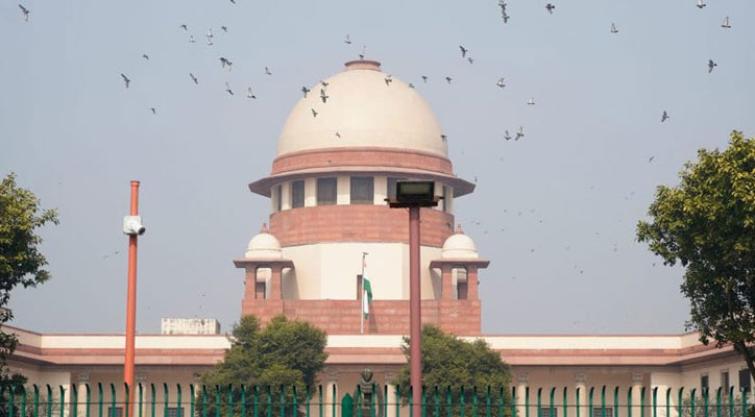By FnF Correspondent | PUBLISHED: 20, May 2025, 17:05 pm IST | UPDATED: 20, May 2025, 17:12 pm IST
 New Delhi: The Supreme Court on Tuesday observed that laws passed by Parliament carry a presumption of constitutionality, and courts cannot intervene unless a clear and serious constitutional violation is established. Chief Justice of India D Y Chandrachud made the remark while hearing petitions challenging the Waqf (Amendment) Act, 2025. A bench of Chief Justice B R Gavai and Justice A G Masih was hearing the matter on May 20, with the Centre urging the court to confine the scope of the hearing to three key issues. These include the powers of Waqf boards to de-notify properties declared Waqf by a court, a user, or a deed.
New Delhi: The Supreme Court on Tuesday observed that laws passed by Parliament carry a presumption of constitutionality, and courts cannot intervene unless a clear and serious constitutional violation is established. Chief Justice of India D Y Chandrachud made the remark while hearing petitions challenging the Waqf (Amendment) Act, 2025. A bench of Chief Justice B R Gavai and Justice A G Masih was hearing the matter on May 20, with the Centre urging the court to confine the scope of the hearing to three key issues. These include the powers of Waqf boards to de-notify properties declared Waqf by a court, a user, or a deed.
Sibal contended that the law was intended to enable the state to seize Waqf properties. In response, CJI Gavai reiterated the constitutional protection given to laws passed by Parliament. “Unless there is a clear issue, courts cannot intervene,” he said, adding, “especially in the current context, we don’t need to say more.”
CJI Gavai further commented, “I have visited dargahs, churches…every place receives offerings,” after Sibal pointed out that mosques, unlike temples, do not receive offerings and that the law targeted “Waqf by user” properties such as the Babri Masjid.
The bench then sought clarity on whether earlier Waqf laws made registration of Waqf properties mandatory. Sibal responded that all post-1954 amendments required registration and that the term “shall” was used, implying compulsion. The court, however, questioned whether use of “shall” alone rendered registration mandatory.
Sibal clarified there was confusion about whether this requirement dated back to 1954 or even earlier to 1923. The court noted Sibal's submission that while registration was required, the earlier law did not specify consequences for failure to register, thereby implying no real legal penalty for non-registration.
In a broader constitutional argument, Sibal said the amended Waqf law violated Article 25 of the Constitution by stripping citizens of their right to freely practise their religion. He cited the example of ASI-protected sites, saying the new law declares that such properties cannot be Waqf.
To this, the Chief Justice asked, “Does this take away your right to practise your religion?” and added that he had seen worshippers freely praying at an ASI-protected temple in Khajuraho. Sibal countered, saying the law’s declaration that such a property is no longer Waqf infringes on the fundamental right to religious practice.
The bench recorded the argument that the law violates Article 25 and reserved further observations for later hearings.

by : Priti Prakash
Trump's policies are affecting Indo US relations and impacting India. Not a day passes when a n...